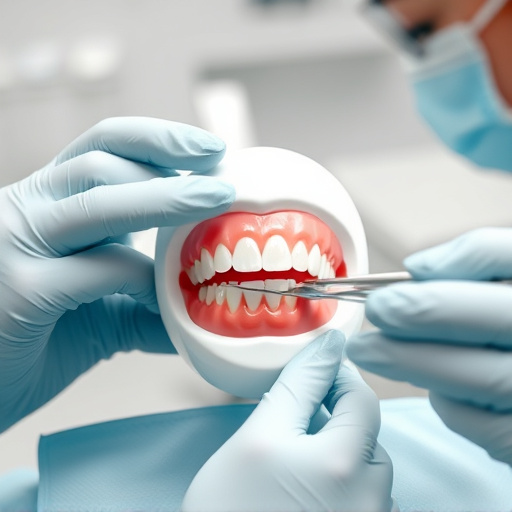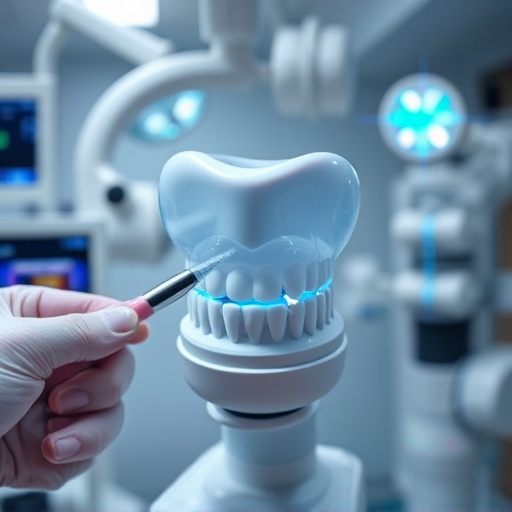Dental infections caused by decay, gum disease, or injuries can lead to severe complications if left untreated. Antibiotic therapy treatment is crucial for eliminating bacterial sources, reducing inflammation, and preventing tissue damage. Using specific antibiotics based on infection severity and type, along with corrective measures like clear aligners or crowns, promotes optimal healing. This targeted approach, combined with dental cleanings, cosmetic dentistry, or tooth repair, prevents complications and supports oral health. Effective antibiotic therapy requires swift diagnosis, tailored antimicrobial selection, proper administration, patient education, and follow-up care. Comprehensive dental care includes preventive measures and post-treatment rehabilitation, such as discussing dental implants after extractions.
“Antibiotic therapy treatment plays a pivotal role in managing severe dental infections, preventing potentially life-threatening complications. This article delves into the critical aspect of dental health, exploring the intricacies of antibiotic therapy as a targeted solution. We begin by understanding the nature of dental infections and their associated risks. Subsequently, we highlight the effectiveness of antibiotic therapy in combating these severe infections, followed by essential guidelines for optimal patient care during treatment.”
- Understanding Dental Infections and Their Complications
- The Role of Antibiotic Therapy in Treating Severe Infections
- Effective Implementation and Patient Care Guidelines
Understanding Dental Infections and Their Complications
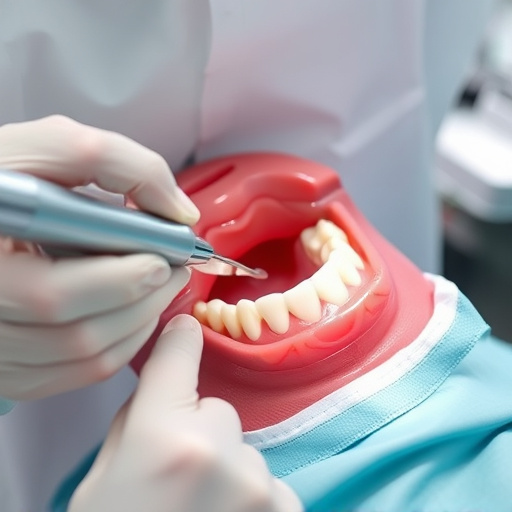
Dental infections are a serious matter that requires prompt attention to prevent severe complications. These infections can arise from various sources, such as tooth decay, gum disease, or even traumatic injuries. When left untreated, they can lead to abscesses, bone loss, and in extreme cases, systemic inflammation throughout the body. Complications may include the spread of infection, causing pain, swelling, and potential damage to surrounding tissues, including the jawbone and nerves.
Antibiotic therapy treatment plays a crucial role in managing these severe dental infections. The right antibiotics can effectively eliminate the bacterial source of the infection, reducing inflammation and preventing further damage. In general dentistry, understanding when to prescribe specific antibiotics is key to successful treatment. This may include the use of clear aligners or dental crowns to address underlying issues while providing targeted antibiotic therapy for optimal healing.
The Role of Antibiotic Therapy in Treating Severe Infections
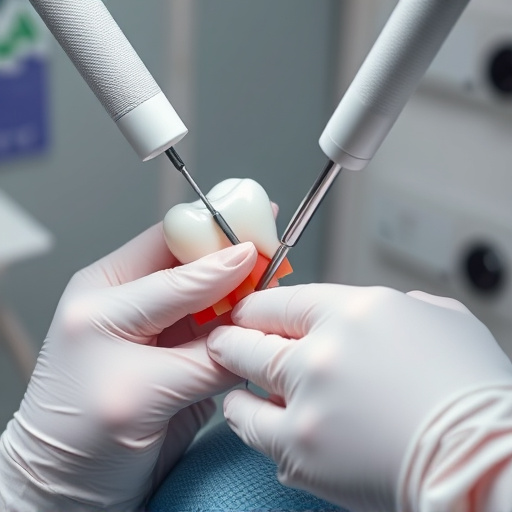
Antibiotic therapy plays a pivotal role in managing severe dental infections, where the right medication can be a game-changer. When it comes to treating deep-seated or widespread oral infections, such as those affecting the pulp, gums, or surrounding bone structures, antibiotics are often an essential component of the treatment plan. These infections, if left untreated, can lead to severe complications and even threaten overall health.
The primary objective of antibiotic therapy in dental treatments is to eliminate bacteria causing the infection, reduce inflammation, and prevent further damage to tooth and gum tissues. Depending on the severity and type of infection, various antibiotics are prescribed, targeting specific pathogens. This targeted approach ensures that the treatment is both effective and minimises the risk of antibiotic resistance, making it a crucial step in modern dental care, alongside procedures like dental cleanings and, for more complex cases, cosmetic dentistry or tooth repair.
Effective Implementation and Patient Care Guidelines
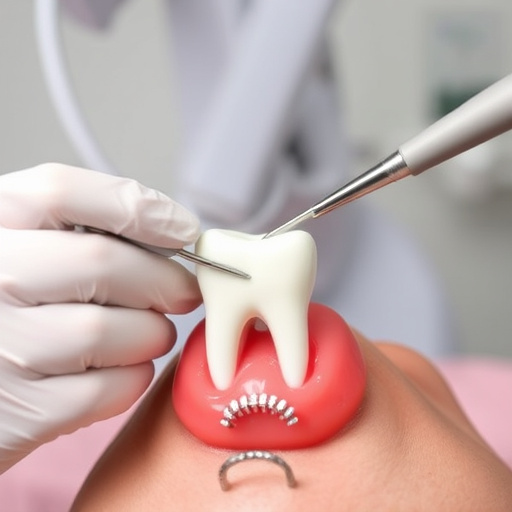
Effective implementation of antibiotic therapy treatment requires adherence to established patient care guidelines. These guidelines emphasize the importance of rapid diagnosis and appropriate antimicrobial selection based on cultural sensitivity profiles and resistance patterns specific to dental infections. Proper administration, including dosage, duration, and route of delivery, is crucial for optimal outcomes. Dentists should educate patients about potential side effects, signs of infection exacerbation, and the need for prompt follow-up care.
Comprehensive dental care involves not only addressing acute infections but also preventive measures to reduce the risk of severe dental infections requiring antibiotic therapy treatment. In cases where tooth extractions become necessary, it is essential to discuss alternative options like dental implants as part of post-treatment rehabilitation, ensuring patients receive comprehensive and personalized care for their oral health needs.
Antibiotic therapy treatment plays a pivotal role in managing severe dental infections, preventing complications, and ensuring optimal patient outcomes. By understanding the unique challenges of dental infections and adhering to effective implementation guidelines, healthcare professionals can provide targeted care. These strategies not only alleviate symptoms but also promote healing and restore oral health, ultimately enhancing patients’ quality of life.












